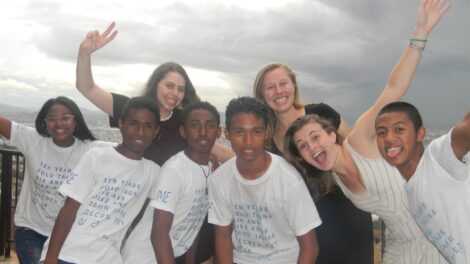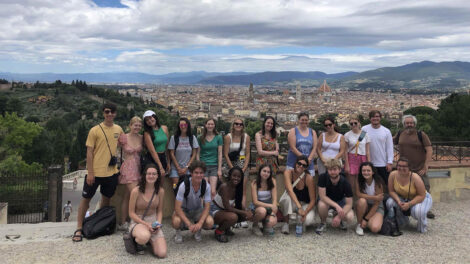Students become mentors in Madagascar
By Shannon Sigafoos
Narindra Andrisoamampianina ’23 knows what it’s like to be in the shoes of high school students at Lycée Andohalo in Antananarivo, Madagascar. After all, she was one of them just three short years ago, taking part in the Lafayette Initiative for Malagasy Education (LIME) as a student mentee, being mentored by Lafayette undergraduates who made the trip to Africa to help students who may otherwise not be able to afford the cost of furthering their education.
This summer, Andrisoamampianina—who is now one academic year shy of becoming a Lafayette graduate—was one of nine Lafayette students who ventured to Lycée Andohalo with lesson plans in hand, ready to change the world of those who were eagerly awaiting their arrival. The goal? To remove the disadvantages they face in terms of applying to colleges in the United States.
Also included in the group were QueSton Bell ’23, Mikias Stewart ’23, Matthew Medaugh ’23, Benjamin Dupont ’23, Grace Moser ’24, Carolyn Eppolito ’23, Mariatou Coulibaly ’23, Shiloh Harrill ’23, and Maria Bossert ’23.
Led by advisors David Stifel, Charles A. Dana Professor of Economics, and Hannah Tatu, ITS user services specialist (who brought her daughter, Madeline), this summer’s peer-to-peer mentoring program took place over the course of three weeks. Like previous LIME itineraries, each day’s sessions were split into working with a morning group (made up of recently accepted LIME students in grade 11) and an afternoon group (made up of those in grade 12 and LIME alumni who have graduated high school). In preparation for the Lafayette visit, the Malagasy students met twice weekly to practice their English and math skills.
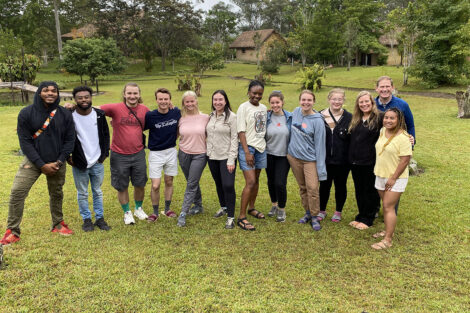
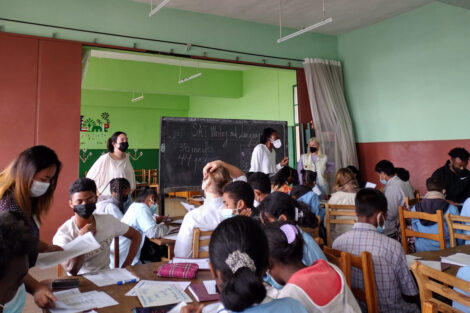
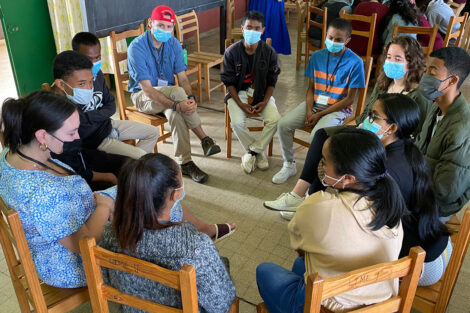
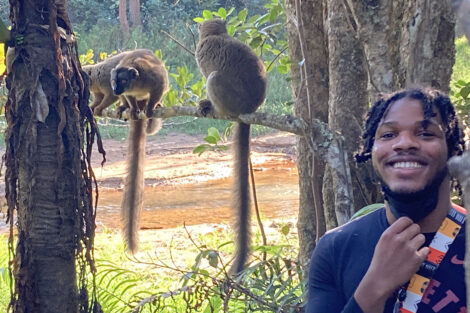
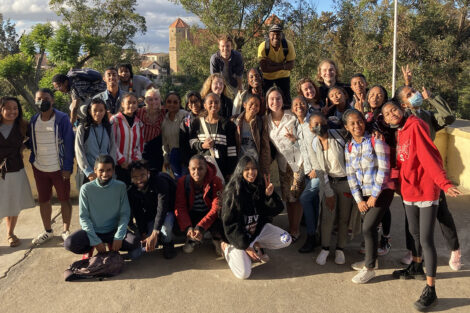
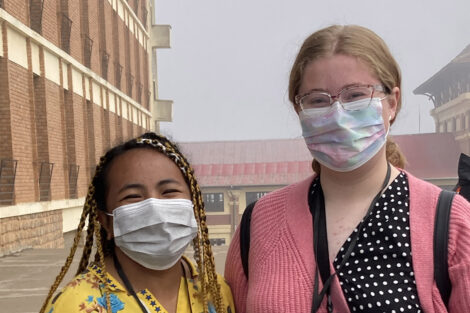
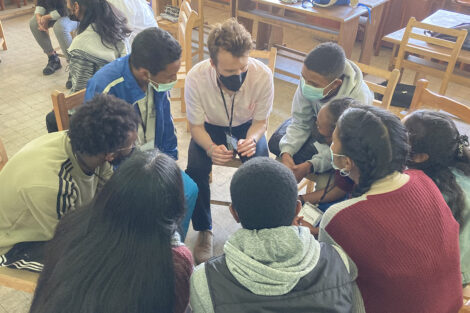
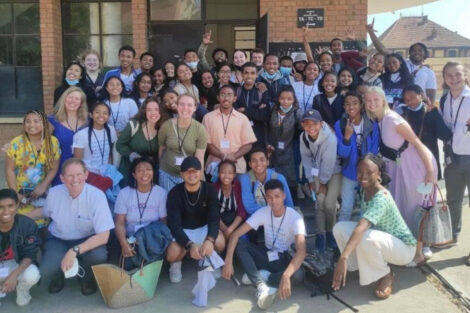
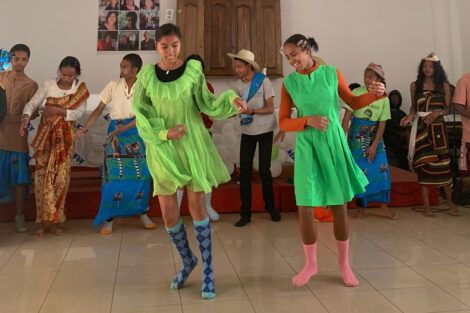
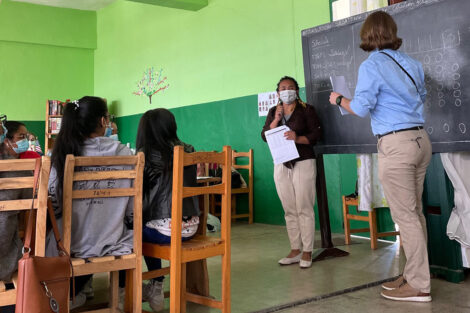
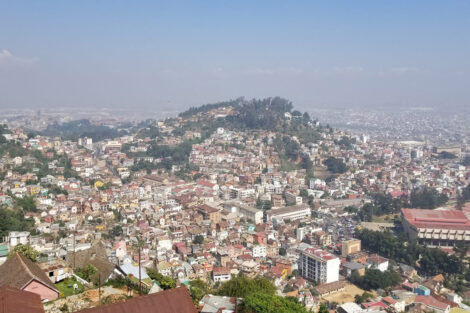
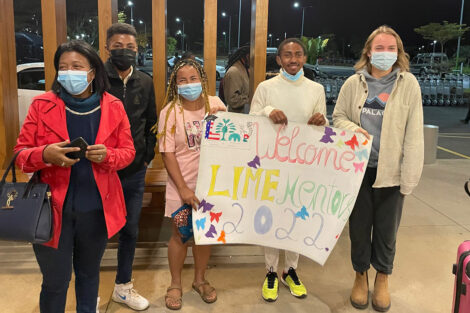
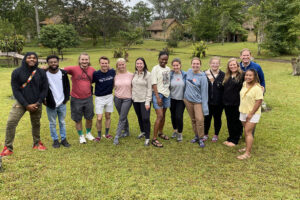
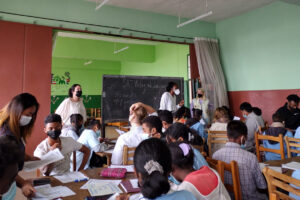
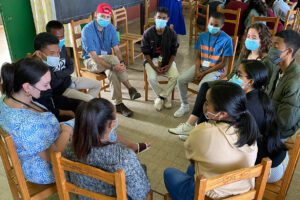
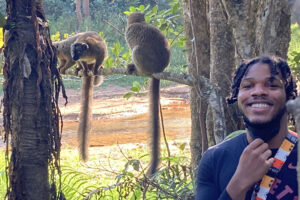
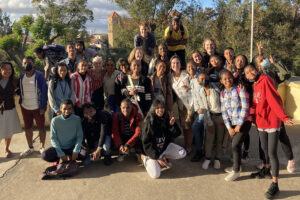
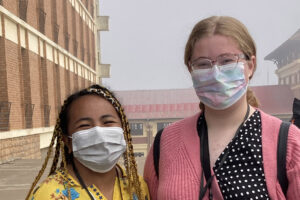
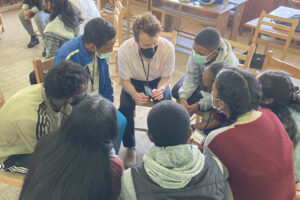
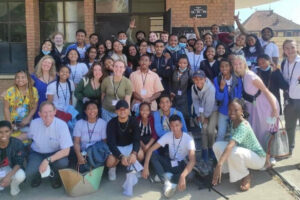
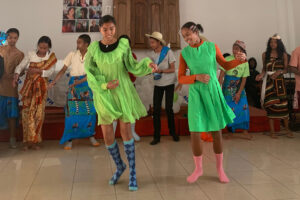
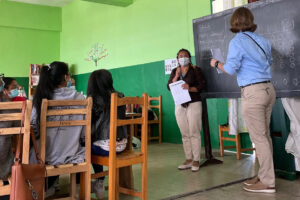
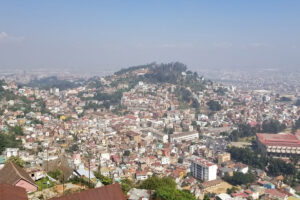
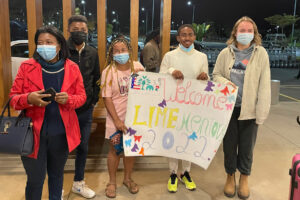
“Our preparation [for mentoring] began in fall 2021, and we met throughout that semester and throughout spring 2022. For those final three months leading up to the trip, the Lafayette LIME students were separated into four groups, and each group had to do research about the TOEFL and SAT test preparations. We would meet without our advisors to talk about the materials and practice teaching the material to the students,” shared Andrisoamampianina, who also acted as a mediator to help Malagasy students understand English. “While it was a lot of preparation, each mentor felt really good about the experience and so did the mentees. By the time we made it to the closing ceremony day, it was a really emotional experience.”
Because the lessons were taught on weekdays, the Lafayette group was also able to take time on weekends to experience local culture, including nature reserve parks and rainforests, the Royal Hill of Ambohimanga (a UNESCO World Heritage site), working farms, and Antananarivo (also known by its local name, Tana).
“That culture piece is so important because it really gave the students a chance to bond,” shared Tatu. “They did such amazing, important work in the classroom and put so much effort into it. It was a real thrill for them to be able to make a difference in these other students’ lives and to be able to walk in their shoes physically, where they come from and where they learn.”
“Being in the classroom was unlike anything I’ve experienced or could have expected. I’ve worked with students before in teaching and mentoring environments, but working at Lycée Andohalo was a unique and singular experience. We had to mentor and relate to students in a way that was educational but still cognizant of our being peers. Mentors figured out those balances early on and were able to connect with students meaningfully enough that many of us are maintaining communication with students through social media,” says Dupont. “What really stood out with this group of students was their eagerness to learn. Every day they traveled from all over the capitol and beyond to participate, and every day they leaned forward in their seats to take in as much as they could from us.”
Lafayette’s LIME team completed a more than 50-page report after the experience, in which they documented the lessons they taught, what went well, and what could be improved. They’re also hopeful that when they receive word back about their mentees’ test scores, those scores mean that they’re one step closer to applying at Lafayette (where Malgasy students have matriculated and been successful) or other higher ed institutions of their choice.
At the end of the day, they also want to know that they’ve given these high schoolers not just the academic piece they need, but also the social and emotional tools to pursue their dreams.
“There are still so few Malagasy students across the country, and many people are not familiar with how Malagasy students can be successful in higher education here,” says Andrisoamampianina, who has been working hard on updates to the LIME website with Eliso Morazara ’24, a rising sophomore from Madagascar, to help promote the program and raise awareness. “The program has been successful here for over a decade, but it would be wonderful to see other colleges and universities learning more about who these students are and how hard they work.”
